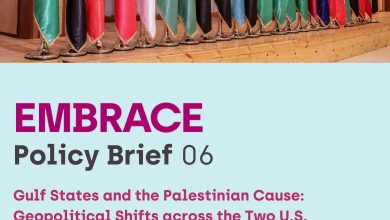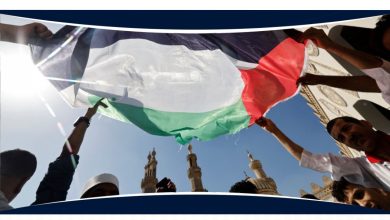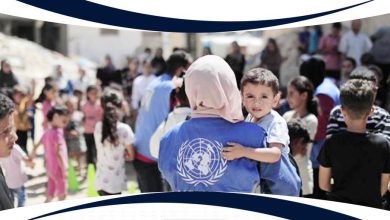Radio Episode on The Role of The Civic Education Corps on Enhancing Youths’ Abilities

Ms Aya Khafaja, a member in Pal-Think’s Civic Education Corps, described her experience in the corps by saying that the experience of performing a training lecture to young people of my age was remarkable, their interaction was encouraging, and they had great interaction with the delivered information. It is worth noting that this Corps was launched by Pal-Think in order to empower youth in Gaza Strip democracy and human rights.
This was during the episode entitled The Civic Education Corps and its role in enhancing the Youths’ Abilities as a part of “Dialogue with Youth’s radio program”, within Civic Education project which is carried out by Pal-Think for Strategic Studies and funded by the National Endowment for Democracy(NED).
The episode guests were Mr Belal AlNajjar, a lawyer, from Pal-Think, and two members of the CEC, Ms Aya Khafaja and Mr Fares Barjas.
Khafaja started by appreciating Pal-Think’s efforts, their interest in youth and giving them a chance to express themselves.
She said that she joined Civic Education after passing interviews, and she found a wonderful welcome when she joined the organization. She countered by saying that they received training in advocacy, gender, governance in Palestine and presentation skills, she added that she felt proud to be a member of the Corps because the training they had received was significant, and they were qualified to pass on that knowledge and experience to their young colleagues and peers. She further stressed that the subjects they had been trained on had been clear to the general youth only to specialists. She also pointed out that her concept had also changed holistically when it comes to gender.
She further emphasized that there were a massive absence for youth in the political participation on the Palestinian society. She concluded by saying that she hope that all the NGOs and other organizations focus on youth since they are capable to change their own reality to a better one.
In turn, Faris Barjas said that they had received a variety of training, but the training of political participation and the electoral process has changed his life, because young people are absent from the electoral process, and they had not the chance to vote, and stand for elections. He added that before the training, he knew very little about the electoral system, but after the training, had given training to a group of university youth in the entire election process, from announcing the elections to producing the results. He also pointed out that there were about 25 young people at his workshop, and they had a clear passion about participation in political life, and they were very much inquiring about elections, their system, their steps, etc.
Barjas called for young people to participate in training and workshops to develop themselves, and for NGOs to give similar opportunities to empowering youth.
He concluded by saying: “Pal Think has allowed us as interns to use its name and its relationships with its partners to coordinate with institutions, which has made our work a lot flexible.
For his part, the lawyer Bilal El Najjar of Pal Think said that Pal Think has adopted a philosophy of focusing on young people in its activities, because it is convinced that societal change can only be through them being the most capable of bringing about real change in society, they raised issues of concern to Palestinian society that contributed to its progress and progress in such diverse areas as the economy, education, human rights and others.
AlNajjar said that added Civic Education is simply a gathering of young people who are seeking to promote a culture of democracy and human rights among young people and to promote a culture of peer education. It adopts the method of transferring knowledge from one young person to another of the same generation because it is more beneficial than between different ages.
He pointed out that the purpose of conducting interviews to select applicants was to identify their needs for a training programme appropriate to them.
He continued: “We trained the trainees to give lectures and we broke their barriers to throwing and standing in front of the audience. We were fascinated by the performance of the apprentices giving lectures and workshops, and a lot of the audience were asking us how we could become such interns. “
AlNajjar stressed that democratization of society required a cumulative effort, and that Pal-Think always relied on these young people to pass on the knowledge they acquired to everyone around them to develop society.
During the project, the Civic Education Manual had been prepared as a basic resource for trainees and other young people and covered several topics of concern to democracy, human rights, gender-based violence and governance in Palestine, integrity, transparency and the principles of good governance.
He concluded by saying: “Pal-Think maintains its relationship with the intern after the project, because it believes in continuity.”




